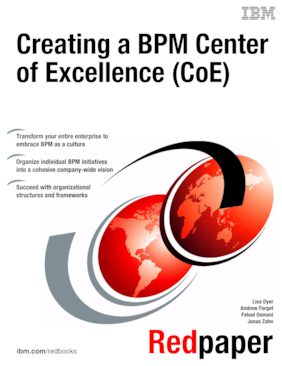Abstract
Your first business process management (BPM) projects, although radically different in the tooling and the methodology for those people who are directly involved in the project, will be chartered, funded, measured, and managed as with any other IT project. However, for an enterprise to accelerate the radical value that a BPM project proves, the enterprise must transform. Change must occur around projects. Funding, staffing, governance, infrastructure, and virtually every aspect of how BPM solutions are implemented, must change before the enterprise can mature to meet those strategic goals that accelerate the value of BPM beyond a handful of projects.
This change is the BPM transformation. Unlike the challenges of the first few BPM projects, this transformation represents an unprecedented challenge to those enterprises that are midway through the pursuit of BPM excellence.
This IBM® Redpaper™ publication seeks to eliminate the uncertainty that organizations face in this next generation of BPM, maturing beyond the success of BPM projects. The goals and concepts of dozens of mature BPM organizations are consolidated here and categorized to provide you with clear mandates, with hope that this clarity will provide purpose, and that this purpose will drive excellence. The audience for this IBM Redpaper includes Executive Sponsors, Team Leaders, Lead Architects, Infrastructure Owners, and in general, anyone interested in transforming the enterprise around BPM principles to create a Center of Excellence (CoE).
Table of Contents
Chapter 1. Introduction
Chapter 2. Strategy
Chapter 3. Delivery
Chapter 4. Shared infrastructure
